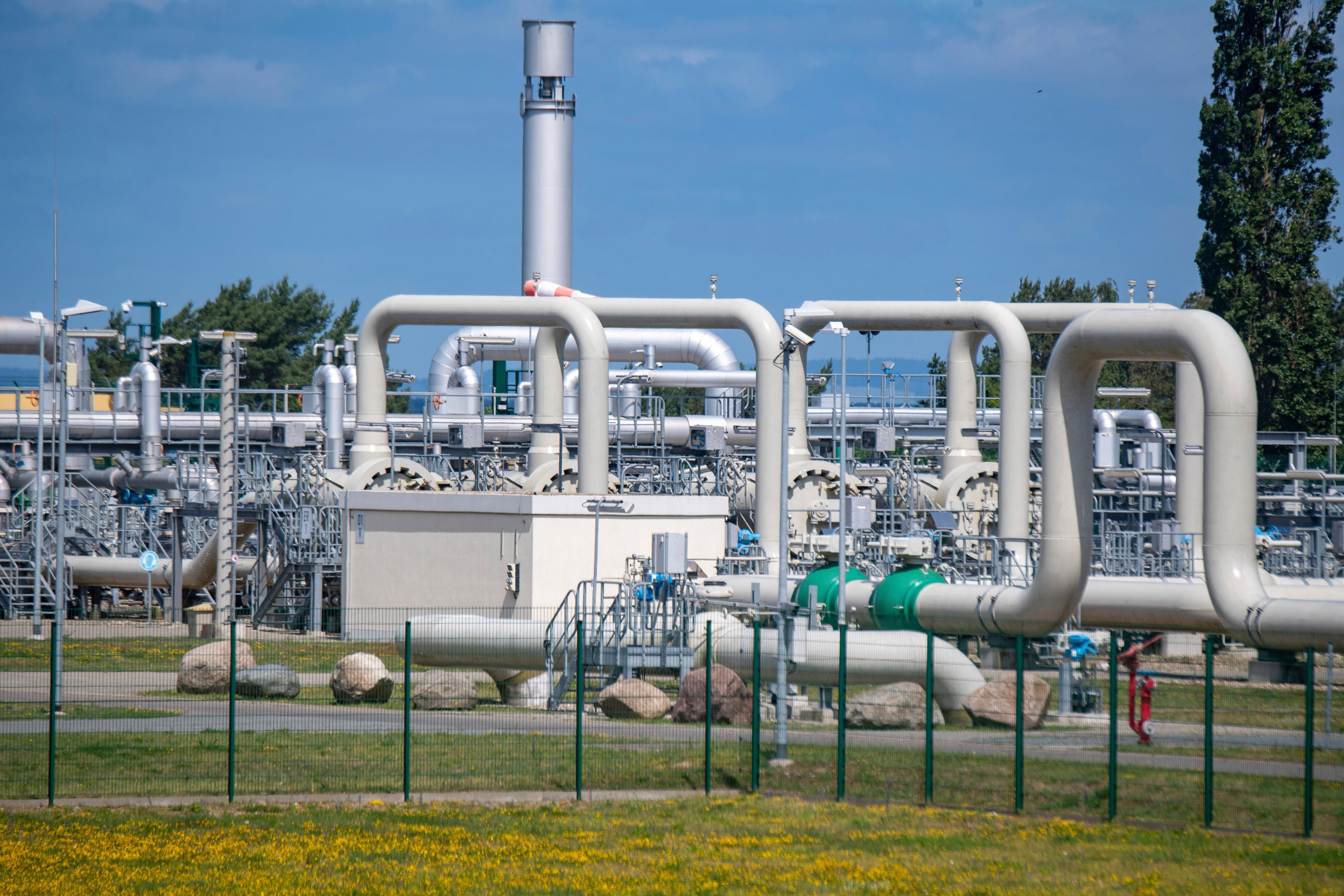Regulator urges Germans to prepare for possible gas shortage
Fearing Russia might cut off natural gas supplies, the head of Germany’s regulatory agency for energy is calling on residents to save energy and to prepare for winter, when use increases

Your support helps us to tell the story
From reproductive rights to climate change to Big Tech, The Independent is on the ground when the story is developing. Whether it's investigating the financials of Elon Musk's pro-Trump PAC or producing our latest documentary, 'The A Word', which shines a light on the American women fighting for reproductive rights, we know how important it is to parse out the facts from the messaging.
At such a critical moment in US history, we need reporters on the ground. Your donation allows us to keep sending journalists to speak to both sides of the story.
The Independent is trusted by Americans across the entire political spectrum. And unlike many other quality news outlets, we choose not to lock Americans out of our reporting and analysis with paywalls. We believe quality journalism should be available to everyone, paid for by those who can afford it.
Your support makes all the difference.Fearing Russia might cut off natural gas supplies, the head of Germany's regulatory agency for energy called on residents Saturday to save energy and to prepare for winter, when use increases.
Federal Network Agency President Klaus Mueller urged house and apartment owners to have their gas boilers and radiators checked and adjusted to maximize their efficiency.
"Maintenance can reduce gas consumption by 10% to 15% ,” he told Funke Mediengruppe, a German newspaper and magazine publisher.
Mueller said residents and property owners need to use the 12 weeks before cold weather sets in to get ready. He said families should start talking now about “whether every room needs to be set at its usual temperature in the winter -- or whether some rooms can be a little colder.”
The appeal came after Russia reduced gas flows to Germany, Italy, Austria, the Czech Republic and Slovakia earlier this month, as European Union countries scramble to refill storage facilities with the fuel used to generate electricity, power industry and heat homes in the winter.
Russian state-owned energy company Gazprom blamed a technical problem for the reduction in natural gas flowing through Nord Stream 1, a pipeline which runs under the Baltic Sea from Russia to Germany.
The company said equipment getting refurbished in Canada was stuck there because of Western sanctions over Russia’s invasion of Ukraine.
German leaders have rejected that explanation and called the reductions a political move in reaction to the European Union's sanctions against Russia after it invaded Ukraine.
Vice Chancellor Robert Habeck, who is also Germany’s economy and climate minister and responsible for energy, has warned a “blockade” of the pipeline is possible starting July 11, when regular maintenance work is due to start. In previous summers, the work has entailed shutting Nord Stream 1 for about 10 days, he said.
The question is whether the upcoming regular maintenance of the Nord Stream 1 gas pipeline will turn into “a longer-lasting political maintenance,” the energy regulator's Mueller said.
If the gas flow from Russia is “to be lowered for a longer period of time, we will have to talk more seriously about savings,” he said.
According to Mueller, in the event of a gas supply stoppage, private households would be specially protected, as would hospitals or nursing homes.
“I can promise that we will do everything we can to avoid private households being without gas,” he said, adding: “We learned from the coronavirus crisis that we shouldn’t make promises if we’re not entirely sure we can keep them.”
He said his agency “does not see a scenario in which there is no more gas coming to Germany at all.”
Also on Saturday, German chemical and consumer goods company Henkel said it was considering encouraging its employees to work from home in the winter as a response to a possible supply shortage.
“We could then greatly reduce the temperature in the offices, while our employees could heat their homes to the normal extent,” Henkel CEO Carsten Knobel told daily newspaper Rheinische Post.
Earlier this month, economy minister Habeck activated the second phase of Germany’s three-stage emergency plan for natural gas supplies, warning that Europe’s biggest economy faced a “crisis” and storage targets for the winter were at risk.
___
Follow AP’s coverage of the Russia-Ukraine war at https://apnews.com/hub/russia-ukraine